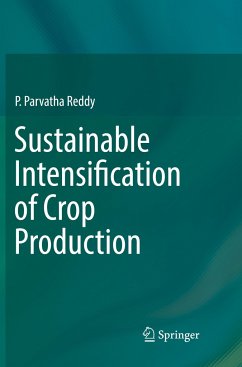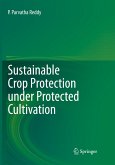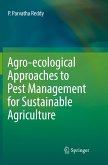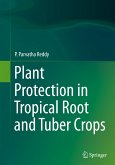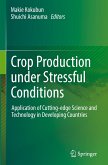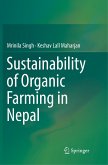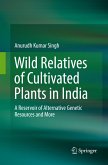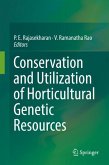This book outlines a new paradigm, Sustainable Intensification of Crop Production (SICP), which aims to produce more from the same area of land by increasing efficiency, reducing waste, conserving resources, reducing negative impacts on the environment and enhancing the provision of ecosystem services. The use of ecologically based management strategies can increase the sustainability of agricultural production while reducing off-site consequences.
The book also highlights the underlying principles and outlines some of the key management practices and technologies - such as minimum soil disturbance; permanent organic soil covers; species diversification; selection of suitable cultivars, planting time, age and spacing; balanced plant nutrition; agro-ecologicalpest management; efficient water management; careful management of farm machinery; and integrated crop-livestock production - required to implement SICP.
The green revolution (by using high-yielding crop varieties, mono-cropping, fertilization, irrigation, and pesticides) has led to enormous gains in food production and improved world food security. In many countries, however, intensive crop production has had negative impacts on production, ecosystems and the larger environment, putting future productivity at risk. In order to meet the projected demands of a growing population expected to exceed 9 billion by 2050, farmers in the developing world must double food production, a challenge complicated by the effects of climate change and growing competition for land, water and energy.
This book will be of immense value to all members of the scientific community involved in teaching, research and extension activities concerning sustainable intensification. The material can be used for teaching post-graduate courses, or as a useful reference guide for policy makers.
The book also highlights the underlying principles and outlines some of the key management practices and technologies - such as minimum soil disturbance; permanent organic soil covers; species diversification; selection of suitable cultivars, planting time, age and spacing; balanced plant nutrition; agro-ecologicalpest management; efficient water management; careful management of farm machinery; and integrated crop-livestock production - required to implement SICP.
The green revolution (by using high-yielding crop varieties, mono-cropping, fertilization, irrigation, and pesticides) has led to enormous gains in food production and improved world food security. In many countries, however, intensive crop production has had negative impacts on production, ecosystems and the larger environment, putting future productivity at risk. In order to meet the projected demands of a growing population expected to exceed 9 billion by 2050, farmers in the developing world must double food production, a challenge complicated by the effects of climate change and growing competition for land, water and energy.
This book will be of immense value to all members of the scientific community involved in teaching, research and extension activities concerning sustainable intensification. The material can be used for teaching post-graduate courses, or as a useful reference guide for policy makers.

